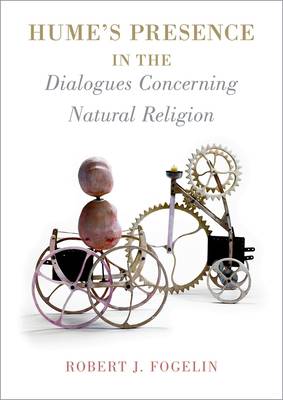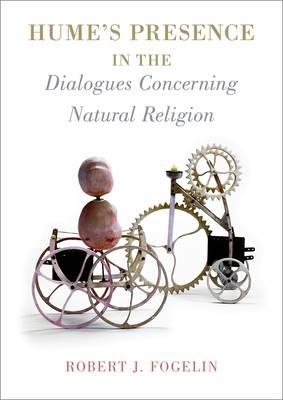
Vous voulez être sûr que vos cadeaux seront sous le sapin de Noël à temps? Nos magasins vous accueillent à bras ouverts. La plupart de nos magasins sont ouverts également les dimanches, vous pouvez vérifier les heures d'ouvertures sur notre site.
- Retrait gratuit dans votre magasin Club
- 7.000.000 titres dans notre catalogue
- Payer en toute sécurité
- Toujours un magasin près de chez vous
Vous voulez être sûr que vos cadeaux seront sous le sapin de Noël à temps? Nos magasins vous accueillent à bras ouverts. La plupart de nos magasins sont ouverts également les dimanches, vous pouvez vérifier les heures d'ouvertures sur notre site.
- Retrait gratuit dans votre magasin Club
- 7.000.0000 titres dans notre catalogue
- Payer en toute sécurité
- Toujours un magasin près de chez vous
77,95 €
+ 155 points
Description
Why did David Hume feel so deeply about publishing The Dialouges Concerning Natural Religion that he set aside funds in his will providing for its posthumous publication? Part of the answer is that it provided a literary, satirical work responding to his mean-spirited theological critics. In Hume's Presence Robert Fogelin provides a textual analysis that demonstrates the close relationship of The Dialogues with his central philosophical writings and its centrality to his relationship with skepticism. A striking feature of The Dialogues is that Cleanthes and Philo seem well versed in the works of the philosopher David Hume. Their arguments often echo in content--even wording--claims found in Hume's central philosophical writings. Beyond this, the overall dialectical structure of The Dialogues mirrors dialectical developments found in both The Treatise of Human Nature and the Enquiry Concerning Human Understanding: the naturalistic effort to provide a rational defense of religion ends in weakening religious commitments rather than in strengthening them.
Nowhere in The Dialogues does Hume address his readers directly. As a result, it may not immediately be clear whether Hume is expressing his own opinions through one of his characters or is using a character to represent a position he wishes to examine, perhaps to reject. The Dialogues is a contest, and Hume, by not speaking directly in his own voice, leaves it-officially, at least-to his readers to judge who, if anyone, wins. The central problem of The Dialogues is to consider what Hume understood by skepticism. The second section of this book examines competing views of Hume's skepticism, concluding with his own remarks. In the Treatise and the Enquiry, Hume says, when consumed by skeptical arguments and reasoning, he finds philosophical nurture in rejoining the practices of everyday life. His famous, concluding remark in The Dialogues about skepticism being the basis for a believing Christian seems cut from the same cloth.
Nowhere in The Dialogues does Hume address his readers directly. As a result, it may not immediately be clear whether Hume is expressing his own opinions through one of his characters or is using a character to represent a position he wishes to examine, perhaps to reject. The Dialogues is a contest, and Hume, by not speaking directly in his own voice, leaves it-officially, at least-to his readers to judge who, if anyone, wins. The central problem of The Dialogues is to consider what Hume understood by skepticism. The second section of this book examines competing views of Hume's skepticism, concluding with his own remarks. In the Treatise and the Enquiry, Hume says, when consumed by skeptical arguments and reasoning, he finds philosophical nurture in rejoining the practices of everyday life. His famous, concluding remark in The Dialogues about skepticism being the basis for a believing Christian seems cut from the same cloth.
Spécifications
Parties prenantes
- Auteur(s) :
- Editeur:
Contenu
- Nombre de pages :
- 170
- Langue:
- Anglais
Caractéristiques
- EAN:
- 9780190673505
- Date de parution :
- 01-09-17
- Format:
- Livre relié
- Format numérique:
- Genaaid
- Dimensions :
- 180 mm x 135 mm
- Poids :
- 136 g







